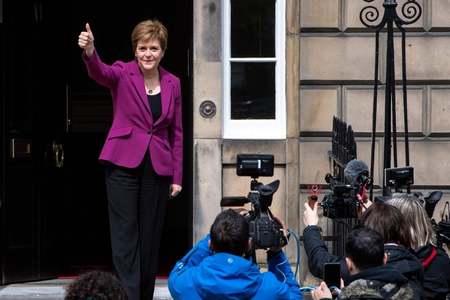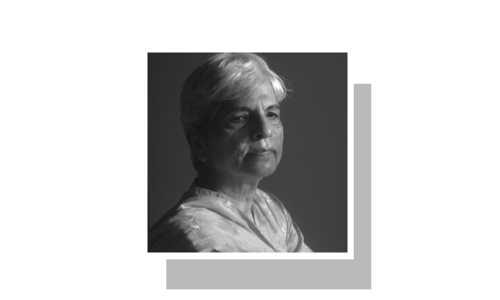LONDON: Britain’s highest court on Wednesday rejected a bid by the devolved Scottish government in Edinburgh to hold a new referendum on independence without London’s consent.
The unanimous ruling by the Supreme Court torpedoed the Scottish nationalist government’s push to hold a second plebiscite next year.
First Minister Nicola Sturgeon, who leads the Scottish National Party (SNP), said she respected the ruling, but accused Westminster of showing “contempt” for Scotland’s democratic will.
“This ruling confirms that the notion of the UK as a voluntary partnership of nations, if it ever was a reality, is no longer a reality,” she told a news conference. Her government will now look to use the next UK general election due by early 2025 as a “de facto referendum” on separating after more than 300 years.
“We must and we will find another democratic, lawful and constitutional means by which the Scottish people can express their will. In my view, that can only be an election,” she added.
Outside the court, David Simpson, 70, who first voted for the SNP in 1970, said he was still hopeful of achieving independence in the future. “This is not the end of the road,” he said. “There is nothing impossible.”
In parliament, UK Prime Minister Rishi Sunak called the ruling “clear and definitive”, adding: “Now is the time for politicians to work together, and that is what this government will do.”
‘Mandate’
The Supreme Court’s Scottish president, Robert Reed, said the power to call a referendum was “reserved” to the UK parliament under Scotland’s devolution settlement.
Therefore “the Scottish parliament does not have the power to legislate for a referendum on Scottish independence”, Reed said.
Sturgeon’s SNP-led government in Edinburgh wanted to hold a vote next October on the question: “Should Scotland be an independent country?” The UK government, which oversees constitutional affairs for the whole country, has repeatedly refused to give Edinburgh the power to hold a referendum.
It considers that the last one — in 2014, when 55 percent of Scots rejected independence — settled the question for a generation. But Sturgeon and her party say there is now an “indisputable mandate” for another independence referendum, particularly in light of the UK’s departure from the European Union. Most voters in Scotland opposed Brexit.
Scotland’s last parliamentary election returned a majority of pro-independence lawmakers for the first time. Opinion polls, however, indicate only a slight lead for those in favour of a split.
At the Supreme Court last month, lawyers for the government in London argued that the Scottish government could not decide to hold a referendum on its own.
Permission had to be granted because the constitutional make-up of the four nations of the United Kingdom — England, Scotland, Wales and Northern Ireland — was a reserved matter for the government in London.
Scotland not Kosovo
Lawyers for the Scottish government wanted a ruling on the rights of the devolved parliament in Edinburgh if London continued to block an independence referendum.
Lord Advocate Dorothy Bain, Scotland’s top law officer, said Scottish independence was a “live and significant” issue in Scottish politics.
Published in Dawn, November 24th, 2022














































